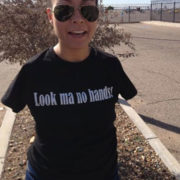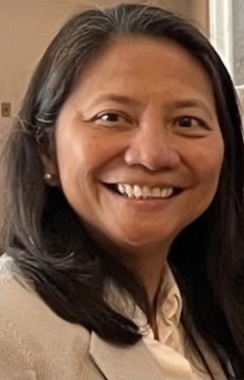LOS ANGELES – Filipino-American motivational speaker Jessica Cox Chamberlain will be bringing her unique inspirational message, “think outside the shoe” to Africa in April.
The 32-year-old Cox, who was born with no arms because of a rare birth defect, is visiting Ethiopia as part of Handicap International’s efforts to foster inclusion of children with disabilities in the African country’s schools.
“I am extremely excited for the opportunity to work with Handicap International in furthering their goals in Ethiopia. My accomplishments are just as much a story of opportunity as they are about possibility,” she said in a statement.
“I hope that sharing my story will help Ethiopians realize that children with disabilities should be given the same opportunities that children without disabilities are given.”
Despite her own disabilities, Cox became a well-known and world-renowned personality by becoming the first armless person to earn a pilot’s license.
Throughout her life, Cox, whose mother is from Samar province in the Philippines, has never given into the doubts or perception placed on her because of her disability.
By the time Cox was 14, she earned a black belt in Taekwondo. She received a Bachelor’s Degree in Psychology from the University of Arizona by typing with her toes. She plays the piano, texts friends, swings nunchucks, uses chopsticks and drives using her feet and toes. Last year, Cox married her Taekwondo instructor.
Cox has achieved more by using just her feet than most other people dare to aspire to, said Nick Sparks, a documentary filmmaker, and writer, who is producing and directing a documentary called RightFooted, which is about Cox’s life.
In Africa, Cox will visit a nation where most people with disabilities are often shunned and denied opportunities in their communities.
According to the United Nations Educational, Scientific and Cultural Organization (UNESCO), 98 percent of children with disabilities living in low-income countries do not attend school.
“In Ethiopia, only one percent of children with disabilities are educated,” said Matteo Caprotti, Handicap International’s country director for Ethiopia. “Most parents of children with disabilities do not think they can benefit from going to school.”
Handicap International is teaming up with several disability and regional educational organizations in the country to create an inclusive education project at six primary schools in Ethiopia.
The goal is to create “disability-friendly schools” that foster the inclusion of children with disabilities.
In Ethiopia, Cox said she plans to work directly with children, their families, teachers, and the Handicap International staff.
The goal is to change attitudes about what’s possible, and to inspire change.
For more information or to help fund Cox’s trip to Ethiopia visit www.rightfooted.com/movie.






